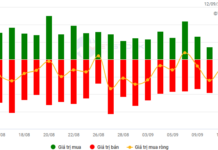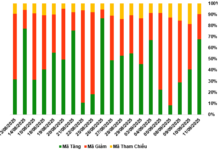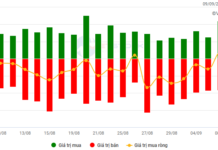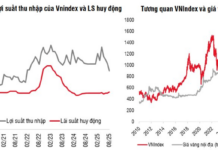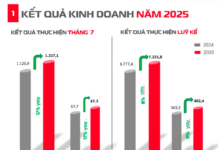On March 17th, in an interview with PV Tien Phong regarding the use of bank cards, particularly credit cards, Mr. Nguyen Duc Lenh, Deputy Director of the State Bank of Vietnam branch in Ho Chi Minh City, stated that in recent days, customers and the public have been especially interested in information related to credit card services, following an incident involving a customer using a credit card at a commercial bank.
According to Mr. Lenh, bank cards can be classified into debit cards and credit cards based on the nature of the funds in the account. Therefore, the rights and responsibilities of cardholders differ.
Specifically, while a debit card uses funds from the customer’s account (such as an ATM card or prepaid card), a credit card is actually a loan. Customers borrow money from the bank for their use. Thus, the regulations regarding the use of the cards, as well as the rights and obligations of cardholders, are different.

Debit cards and credit cards have several differences.
This distinction is important for banks and their employees when conducting transactions and advising customers. They need to be aware of the different regulations, rights, and obligations of the account holders and cardholders in order to facilitate their usage of the services and minimize any related issues that may affect their rights.
For debit cards, customers need to open a payment account and deposit money into the account in order to use the card. The opening and usage of this account by both customers and the bank must comply with the regulations of the State Bank of Vietnam.
In addition to promoting the benefits of the service, banks should also inform and advise customers about the regulations regarding the rights and obligations of the account holders and cardholders. This will facilitate the usage of the service and minimize any related issues that may affect the rights of the customers.
Banks should also emphasize the importance of information security, provide information to the customers, and comply with the regulations regarding the accounts and transaction balances. The closure of the account must be in accordance with the regulations. Banks can only temporarily freeze or close an account upon the customer’s request (except in cases where the account holder has not fulfilled their payment obligations based on the decision of the competent state authority or has not fully paid their debts to the service provider where the account was opened).
Furthermore, customers need to be informed about the time limits for closing their payment accounts due to insufficient minimum balances and no transactions over an extended period of time. In addition, they should be informed in advance about the closure of their payment accounts and other specific issues related to the closure in case of violations of the regulations by the service provider and public notification to the customers.
According to Mr. Lenh, credit cards allow customers to spend first and pay later within a certain period of time (usually from 30 to 45 days) without incurring interest. After this period, the bank will charge late payment interest in accordance with the regulations.
In essence, this is a loan, and the advantage is that customers do not have to pay interest for a certain period of time. The usage of credit cards also brings many benefits to customers and the economy, such as stimulating consumption, promoting commerce, services, and tourism development, and facilitating the development of banking services. This only happens if credit cards are used effectively and according to the regulations.
However, the money in the card account for payment and usage is essentially the bank providing a prepayment or loan. Therefore, customers have the responsibility to repay it, and legally, customers using credit cards must comply with the regulations on lending by the State Bank of Vietnam (the provisions relating to credit cards in Circular 39/2016/TT-NHNN).
In order to use a credit card and be issued one, customers must demonstrate their financial capacity. If they meet the bank’s criteria, they will be issued a card with an appropriate credit limit.
“Banks need to inform and advise customers about all of these matters. They should monitor and remind customers of their loan balances. The goal is to help customers use their cards effectively, minimize late payments and related issues, and prevent unnecessary incidents that could affect the quality of service and the card brand, as well as the customers using the cards,” emphasized Mr. Lenh.
The leadership of the State Bank branch in Ho Chi Minh City believes that doing this well will not only help banks expand and develop their services effectively, but also assist customers and the public in using the services effectively and minimizing risks in the usage process, especially in the context of the economy increasingly developing in a modern direction and the use of bank cards becoming more widespread.

